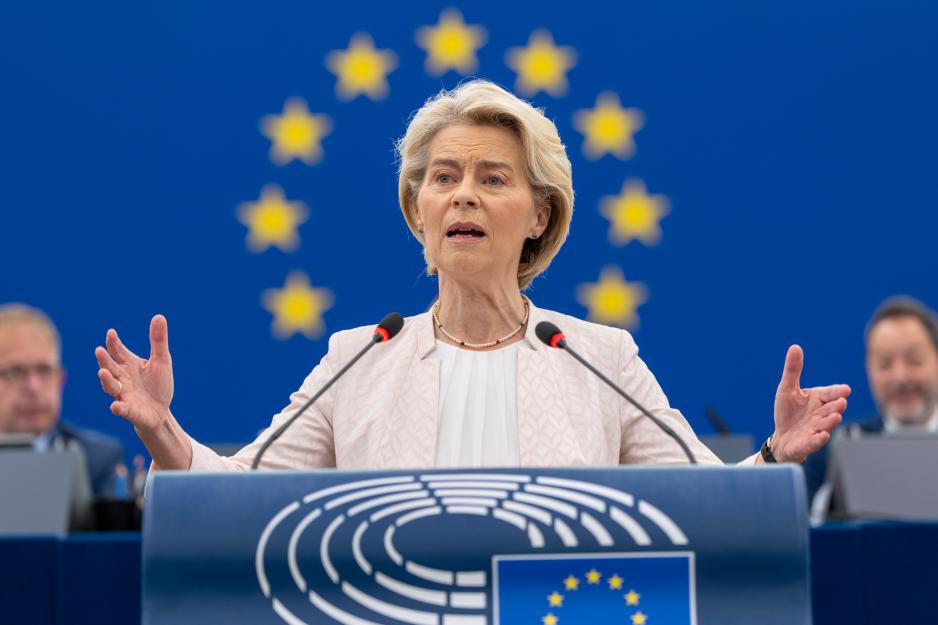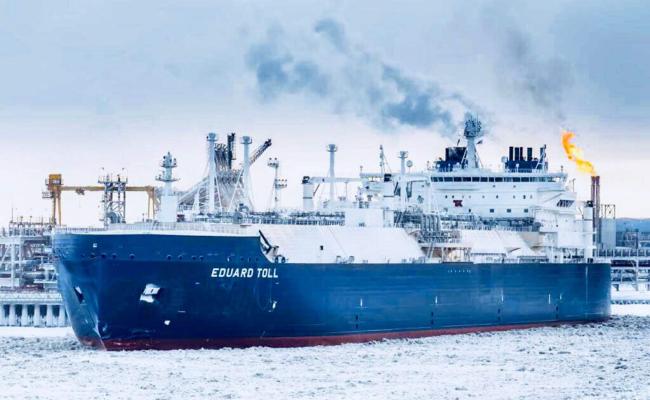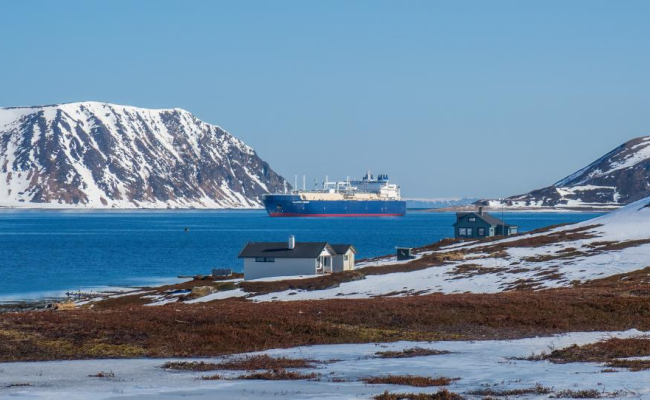EU Proposes Phase-Out Of Russian Gas by 2027, Currently Spends €1.5bn Each Month on Imports

European Commission President Ursula von der Leyen in front of the European Parliament in July 2024. (Source: EP under CC-BY-4.0: © European Union)
The European Commission announced the details for its proposed ban of Russian gas and oil. Short-term and new contracts could come to an end in 2026, but the bulk of imports under long-term agreements would continue for another 2.5 years, potentially sending another €30-40 billion to Russia.
After years of wrangling over ending imports of Russian pipeline and liquefied natural gas the European Commission has published its legislative proposal. Under the deal the EU would phase-out both gas and oil imports gradually over the next 2.5 years by the end of 2027.
Meanwhile in the present member states continue to import these types of fuels from Russia sending significant sums of money to the country every month.
Over the first four months of 2025 EU countries bought gas worth more than €5 billion from Russia, an increase of 17 percent over the same period in 2024. Liquefied natural gas from the Arctic Yamal project constitutes around 2/3 of this total.
Import ban
Between January and April the EU imported Russian LNG worth €3.3 billion, with an additional €2.1 billion for pipeline gas.
In April the largest buyers of LNG from Russia were France (€230 million), Spain (€153 million), and Belgium (€83 million).
Increase energy independence while reducing the revenues Putin uses to finance his war
The now-proposed gradual import ban would put a stop to new import contracts by 1 January 2026. Spot sales could continue for another full year until 17 June 2026 and existing long-term contracts would have more than 2.5 years of runway remaining.
Mostly business as usual til 2027
The vast majority of Russian LNG sales from the Yamal project are sold under existing long-term contracts. Thus imports from the Russian Arctic would remain largely unaffected until the end of 2027.
“[The proposed ban] will increase our energy independence while also reducing the revenues Putin uses to finance his war,” said Dan Jørgensen, Commissioner for Energy and Housing.
Though he did not comment on the substantial amount of revenues that will continue to flow between today and the end of 2027.
Assuming imports continue at the current rate and prices, EU member states could send another €10-15 billion to Russia for imports from Yamal LNG alone, before the full ban takes effect. Additional sums would come from imports of pipeline gas and crude oil.

The full text of the draft regulation highlights that EU members spend more than €15 billion per year on gas imports from Russia. (Source: European Commission)
European advocacy groups and Ukrainian officials have repeatedly pointed out that the amount select EU states spend on Russian energy imports exceeds the amount of aid provided to Ukraine.
The passage of the legislation in its current form is far from certain. It requires a qualified majority in the Council and adoption in the European Parliament. The proposal is part of the REpower EU Roadmap which envisions a new energy supply security architecture across the bloc.
“Russia has repeatedly attempted to blackmail us by weaponising its energy supplies. We have taken clear steps to turn off the tap and end the era of Russian fossil fuels in Europe for good,” said Commission President Ursula von der Leyen.
Putting legal safeguards in place
For several years EU and member states officials as well as the companies involved in trading Russian gas and LNG argued that breaking long-term supply contracts would not be straightforward and would expose them to potential lawsuits.
According to the European Commission this week’s proposal “provides companies with a solid legal framework” shielding them from repercussions. The EU did not make it clear why this legal framework could not have been put in place at an earlier time.
The full text of the proposed regulation states that the 2.5 year phase-out is required “to prepare for the full phase out of Russian gas in 2028 in a coordinated manner and to give the market sufficient time to anticipate the changes.”
The extended timeline does, however, also give Russia and main operators like Novatek, sufficient time to revamp logistics chains and secure new buyers outside the European market.
Early shifts can already be observed with a growing number of ship-to-ship transfers in Russian waters, rather than in European ports.



